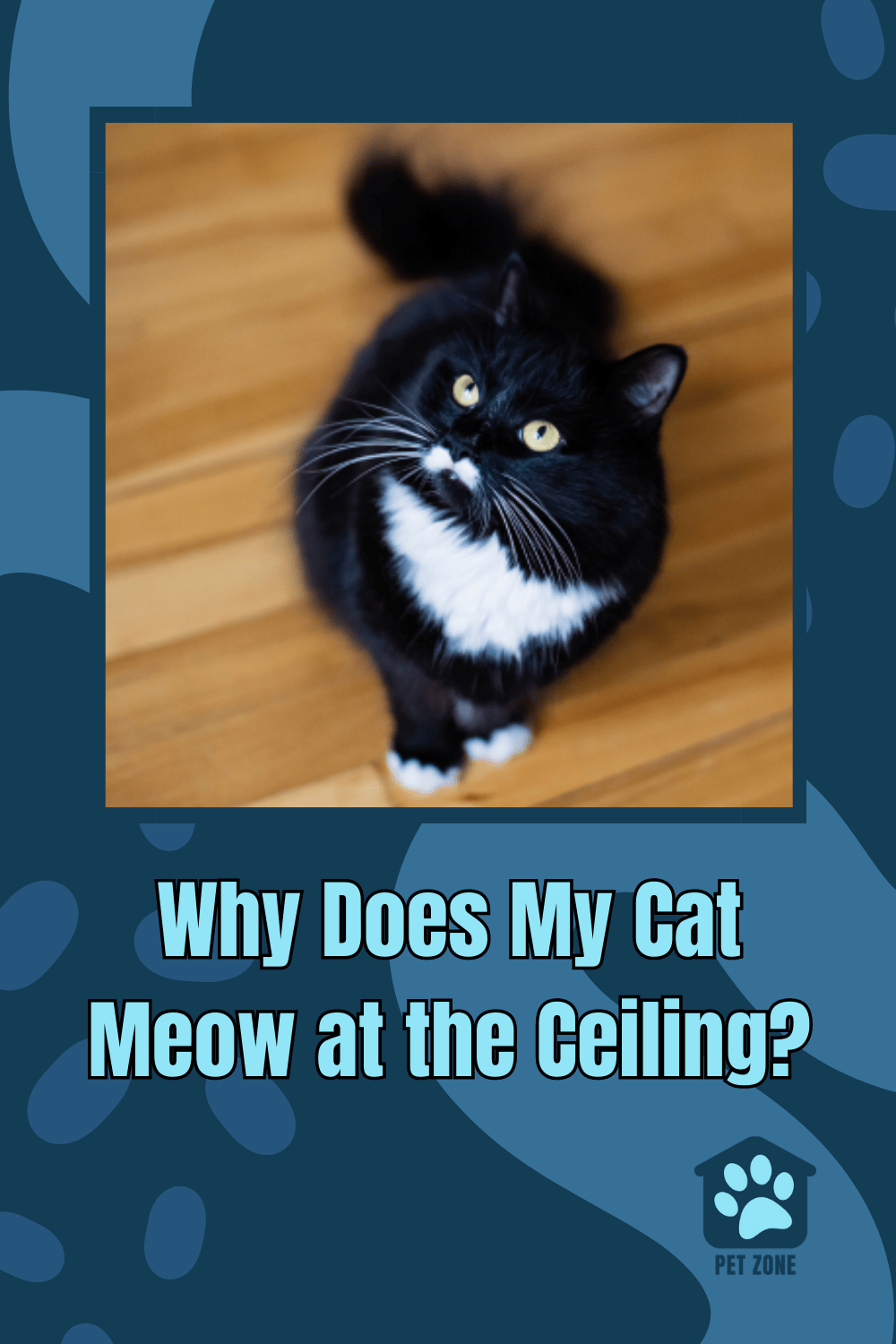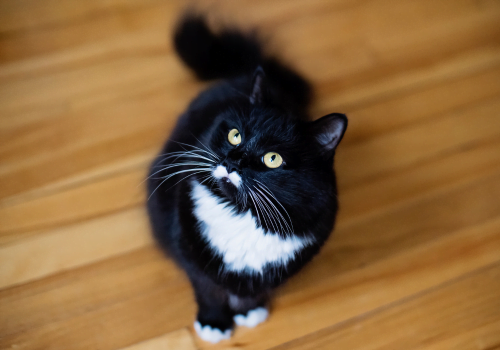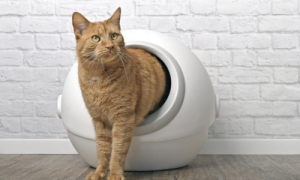Estimated reading time: 4 minutes
If you’re a cat owner, you might have noticed your feline friend meowing at the ceiling or the walls. It’s a behavior that can seem quite puzzling at first. Why do cats do this? What are they trying to tell us? In this article, we will explore the possible reasons behind this behavior and provide some helpful tips for addressing it. Let’s dive in!
Possible Reasons for Cats Meowing at the Ceiling or Walls
Insects or Small Animals
One possible reason is that your cat has spotted an insect or small animal on or near the ceiling. Cats are natural hunters, and their instincts drive them to chase and capture prey.
Shadows and Reflections
Cats can be intrigued by shadows and reflections on the ceiling, especially if they’re moving. They might meow at these visual stimuli out of curiosity or because they want to play.
Sounds
Cats have excellent hearing, and they might be meowing at the ceiling because they hear something that you can’t. This could include sounds from within the walls or attic, such as rodents or birds.
Boredom
If your cat doesn’t have enough mental stimulation or physical exercise, they might meow at the ceiling out of boredom. This behavior could be an attempt to find something to do or a way to get your attention.
Anxiety or Stress
Cats can experience anxiety or stress just like humans. Meowing at the ceiling might be a sign that your cat is feeling anxious or stressed about something in their environment.
Illness
In some cases, meowing at the ceiling could be a sign of an underlying health issue. Cats can’t tell us when they’re feeling unwell, so they might resort to unusual behaviors like this to express their discomfort or pain.
Attention-Seeking Behavior
Some cats meow at the ceiling simply because they want your attention. They might have learned that meowing in this way gets them the attention they crave, even if it’s just a puzzled look from you.

What You Can Do to Help Your Cat
If your cat is consistently meowing at the ceiling, there are several steps you can take to help them.
Investigate the Environment
First, check for any potential causes in the environment, such as insects, small animals, or unusual sounds. If you find something that might be triggering the behavior, address it accordingly.
Provide Mental Stimulation
Ensure that your cat has enough mental stimulation by providing them with toys, interactive games, and opportunities for play. This can help prevent boredom and reduce the likelihood of attention-seeking behavior.
Reduce Stress
Identify and address any sources of stress in your cat’s environment. This could include loud noises, other pets, or changes in their routine. You can also create a calming atmosphere by providing a safe, quiet space for your cat to retreat to when needed.
Check for Health Issues
If you suspect that your cat’s meowing at the ceiling might be related to a health issue, consult with your veterinarian. They can help determine if there is an underlying condition that needs to be addressed.
Seek Professional Help
If you’ve tried everything and your cat is still meowing at the ceiling, it might be helpful to consult with a professional, such as a cat behaviorist or a veterinarian with a specialty in feline behavior. They can offer guidance and recommendations tailored to your cat’s specific needs.
Conclusion
Cats meow at the ceiling for various reasons, including hunting instincts, curiosity, boredom, stress, or attention-seeking behavior. By understanding the possible causes and taking appropriate steps to address them, you can help your cat feel more comfortable and secure in their environment.
As an Amazon Associate I earn from qualifying purchases.










My cat also always meows at the ceiling, I always think it’s normal because maybe there are lizards, birds, or bats up there. Thank you for this informative post.